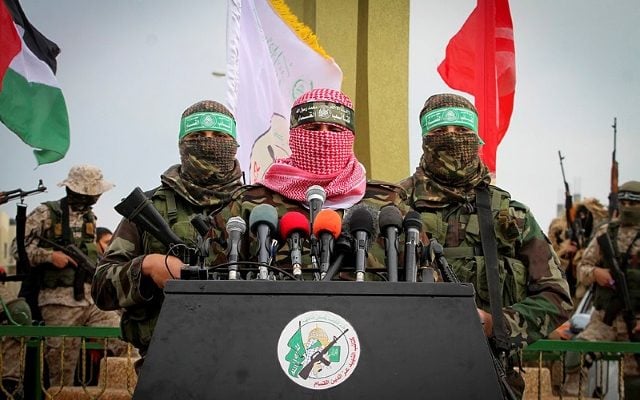ANALYSIS: Hamas has been organizing throngs of Gazans to overrun the border fence with Israel at their own peril. Why are they using this tactic and why now?
By: Mati Wagner, World Israel News
The Hamas-orchestrated attempts to breach the border fence separating Israel from Gaza reached new levels of violence Monday.
Over 60 Gazans were killed and hundreds were wounded as IDF forces stationed along the border fence used tear gas and other forms of crowd control, as well as live fire, to prevent thousands of rioters — including armed Hamas and Islamic Jihad terrorists — from forcing their way into Israel and attacking IDF soldiers and neighboring Jewish communities.
But why is this happening now? And why has Hamas changed its tactics?
Hamas is in trouble
Ostensibly, the rioting, which has been billed by Hamas as the “Great March of Return,” is about the Palestinian “right of return” or the right of Palestinian “refugees” to “return” to their homes in Israel. The incidents on Monday coincided with the eve of Israel’s Independence Day, which Palestinians call Nakba Day or “the day of the catastrophe.”
But the real reason for the rioting is that Hamas is in trouble. The terrorist organization is facing a humanitarian crisis at home and diplomatic isolation abroad.
Gazans lack basic necessities due to Hamas’s incompetence and willingness to prioritize terrorist capabilities over taking care of Gazans.
Countries such as Egypt, Jordan and Saudi Arabia are openly antagonistic to Muslim Brotherhood offshoots like Hamas.
Egypt in particular, which shares a border with Gaza and has enforced a blockade of the Strip together with Israel to prevent it from rearming, has accused Hamas of aiding Islamists operating in the Sinai who have attacked and killed Egyptian forces.
The ongoing conflict between Hamas and the Fatah leadership in Judea and Samaria– including what Fatah says was a Hamas assassination attempt against its leaders during a visit to Gaza in March — has led Palestinian Authority President Mahmoud Abbas to cut off funds to Hamas.
Hamas’s strategy has been to divert attention away from its own failures by encouraging thousands of Gazans with nothing to lose to rush the Israeli border fence and provoke an Israeli reaction.
Iron Dome’s success
Another reason Hamas has switched tactics is that Israel has successfully neutralized other Hamas threats. The Iron Dome anti-missile defense system has the ability to knock out of the sky Hamas’s rockets aimed at Israelis civilians.
Hamas has also been losing its attack tunnels, thanks to Israeli underground search technologies.
Hence the tactic of enlisting thousands of Gazans to rush Israel’s border fence.
A culture of victimhood
The tactic being used by Hamas fits perfectly into the Palestinian culture of victimhood. Hamas’s willingness to harm its own people to advance the notion that it is a victim of Israeli wrongdoing was on display not only in Hamas’s tactic of sending Gazans to rush the border fence with Israel, but also in its refusal to accept medical supplies from Israel, even though Gaza hospitals are struggling with shortages.
On Tuesday, Israel facilitated the entrance of eight trucks full of medical equipment into the Gaza Strip via the Kerem Shalom Crossing, which reopened after it was burned by Palestinian rioters. But Hamas sent back two of the trucks after it was discovered that the medical supplies on the trucks were from Israel.
Hamas accused Israel of “trying to improve its black image” by sending the humanitarian aid.
The ‘right of return’ narrative
Hamas’s claim that the rioting is about the”right” of Palestinian “refugees” to return to their homeland — which happens to be Israel — continues to have currency among many who are sympathetic to the Palestinian cause.
One of the organizations perpetuating the idea that Palestinians living under an autonomous Gaza Strip run by Hamas should still be considered “refugees” is the United Nations Relief and Works Agency (UNRWA) for Palestine.
UNRWA, which employs 11,500 in Gaza alone, is an organization that at least nominally is dedicated to transforming refugees into fully self-sufficient individuals.
Yet it has allowed the myth of the “right of return” to persist. Within UNRWA it is heretical to say that repatriation to Israel is unrealistic. According to James G. Lindsay, UNRWA’s lawyer and general counsel from 2000 to 2007 and the organization’s most evenhanded critic, it is downright dangerous.





